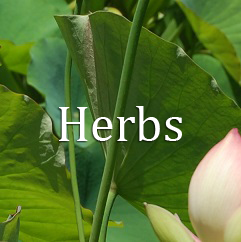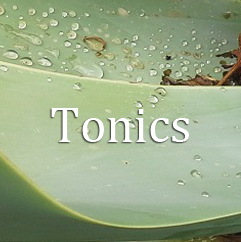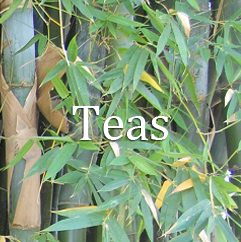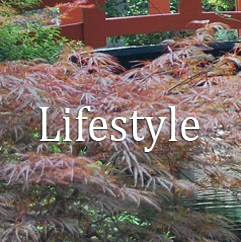Before predicting that you can hide those life changes, take a glance at what you’re dealing with. The change that shows—is it on your nose, eyes, cheeks, or hairline? For where, and, exactly what, is different from 10 years ago, pull out a photograph of yourself that dates back 10 years. Then take that image to a mirror and compare yourselves. What’s “new” on your skin?
Ancient and indigenous medicine says that some bodily imbalances are easily visible on the skin. Chinese Medicine (TCM) attributes skin problems to disharmony in the liver, while Ayurvedic medicine acknowledges skin problems as the last resort of disease, after it has permeated the interior tissues. Reviews of books on TCM and Ayurvedic medicine appear elsewhere on this blog.
A number of nutrition experts, doctor, professionally credentialed and clinical practitioners have got your back, as they say, when it comes to what ails you as you age. Most assuredly you’ll age, if you’re lucky to have longevity. But why go it unawares, without a thought to what you’re eating, for example? A select few experts cited below have lots to share that you can use.
Author Lourdes Julian Cabuk illustrates how to prime your face for a more youthful, unmarred appearance. Her book Yoga for a Beautiful Face is described on Goodreads. Cabuk offers yoga poses to help your body cope with deteriorating energy due to stress, physical challenges to the spine, and current lifestyle norms.
Cabuk’s theories and exercises for your face are appropriate at any age, but most especially now. When you’re feeling run-down, if you change the direction of the body’s energy, you’ll feel better and look better for it.
Around the age of 45 or so, many women experience a range of reactions and syndromes related to a lack of well-being. This diminished quality of life often disturbs bodily systems, as Dr. Weil says, and makes the body very sensitive to otherwise normal stresses of daily life.
4 decades of change.
By age 45 or so, we have seen over 4 decades of changes to our bodies. And sometimes the body shows signs of not liking it very much at all! There are bulges, bumps, pains, moods and more.
Self-awareness and self-care are not in our usual m.o., right? Thus, the body, mind and spirit get pushed around by what we think or believe is right, which is not the same as what we should be doing for longevity. Being treated so carelessly for so long, the body shows signs of built up reactions to stressors and cannot continue under such pressure without complaint.
The nervous, digestive, and/or circulatory systems now react with pain signals, allergies, and symptoms of disease. Some women are plagued with insomnia, skin problems, reduced visual acuity, gall bladder-related discomfort; and still others experience kidney problems—with constantly needing to empty the bladder, or, more embarrassingly, they are plagued with incontinence.
For an article on insomnia, read Dr. Tori Hudson here. And if you want to know about herbs or supplements that could help urinary incontinence, see answers by Terry Lemerond, a nutrition expert giving advice about urinary discomfort.
What we should be doing for longevity might include getting to know about homeopathy. That it exists. That some substances you can take for aches and pains actually come from the source of discomfort itself, thereby nullifying pain. See this opinion article with many facts about your homeopath.
Become aware of the subtle signals that bodily energy is weak.
For some, fatigue reduces optimism in an otherwise energetic life. Sometimes low energy supresses or hides bodily reserves of energy in order to keep a balance, to sustain life and maintain homeostasis. Energy medicine, much like yoga, is a way to redirect bodily energy. And it’s a method of self-care that can be practiced at home. See Donna Eden for energy medicine.
At the point of weaker energy, when a problem has gotten out of control, women (and men) are most likely to seek medical advice from Western medicine—in order to get prescribed, fast-acting, pharmaceutical drugs. Of course these drugs—a term that refers to willfully forcing the body into submission to a substance—do not promise to make your body stronger, or to alleviate what’s causing your distress. Drugs often come with the kind of side-effects that are difficult to justify.
Hardly blamable—going for the fast-acting drugs—especially when a situation is acutely painful. Yet leaving aside the whole process of self-discovery significantly impacts our health.
Why is this a common circumstance? Can the effects be relieved so that women can maintain a level of energy and quality of life throughout the middle to late-middle years? Wouldn’t it be better to have a high level of comfort throughout life, even into old age?
Longevity.
Being concerned with the ability of the body to maintain homeostasis—-is that what the term longevity means?
Because for most of us who are suddenly awake to the concept (of longevity), too much change has happened on our faces. That lack of energy to maintain homeostasis needs a boost. And that extra shot of energy might come from the right food, the right kind of lifestyle, a positive outlook, and being grateful. But in any case, yes, longevity is what we strive for, in spite of ourselves.
To begin, we need to acquire the tools to bring longevity into our circle.
Herbalism and Remedies
Herbalists have been meeting the challenges posed by lifestyle setbacks to homeostasis. Herbs from ancient European, Asian and American traditions give empirical evidence of help in crises and as remedies for ongoing or chronic conditions. A study for the effects of acupuncture on insomnia and one stating the benefits of acupuncture for incontinence show that indeed ancient medicine can help these conditions.
See this review of Chinese Tonics, a book by Ron Teeguarden to see a glimpse of herbal tonics, or healthful drinks.
Maria Noel Groves, a registered herbalist, educator and clinical herbalist, wrote Body Into Balance. It’s a book written from the point of view of the body and its functions which suggests using herbs to maintain health. It’s reviewed on this blog, here.
These alternatives, available now, can help maintain a youthful life, and options are within your grasp to help you understand your body’s energy needs.
Pain relief
Although not a daunting task, the importance of caring for yourself versus accepting without question that some foods and lifestyle choices may be causing you problems, becomes obvious when you see a connection between some foods and arthritis, for example. Make new choices, or make a different one today. And one by one, bit by bit your efforts will add up. Your ability to by joyful (see Kelly Brogan, MD) will bloom again.
A link between lifestyle choices and pain is seen in this article on GreenMedInfo.
Instead make new choices
Sometimes, people are not that keen on being preemptive, or perhaps they are not used to the level of self-care that forestalls or prevents discomfort, and hopefully, disease. Most of us are kind of child-like in that we want to keep on playing around with dangerous things, but have our health, too. That may seem to work while you are young, but it’s not a forever kind of attitude. It’s actually self-defeating in the long-run.
Women especially, but both sexes, could instead make new choices that would help them maintain a full and active life, free of health setbacks they experience due to poor lifestyle choices. So, if you’re interest lies in pursuing health… the investment in time will pay off for you and those you care about. If the result is you become healthy and strong, they might want to follow your example. For who knows—in 10 years the face you’ve earned might be totally ecstatic and ageless—an improvement, no doubt!
Follow


